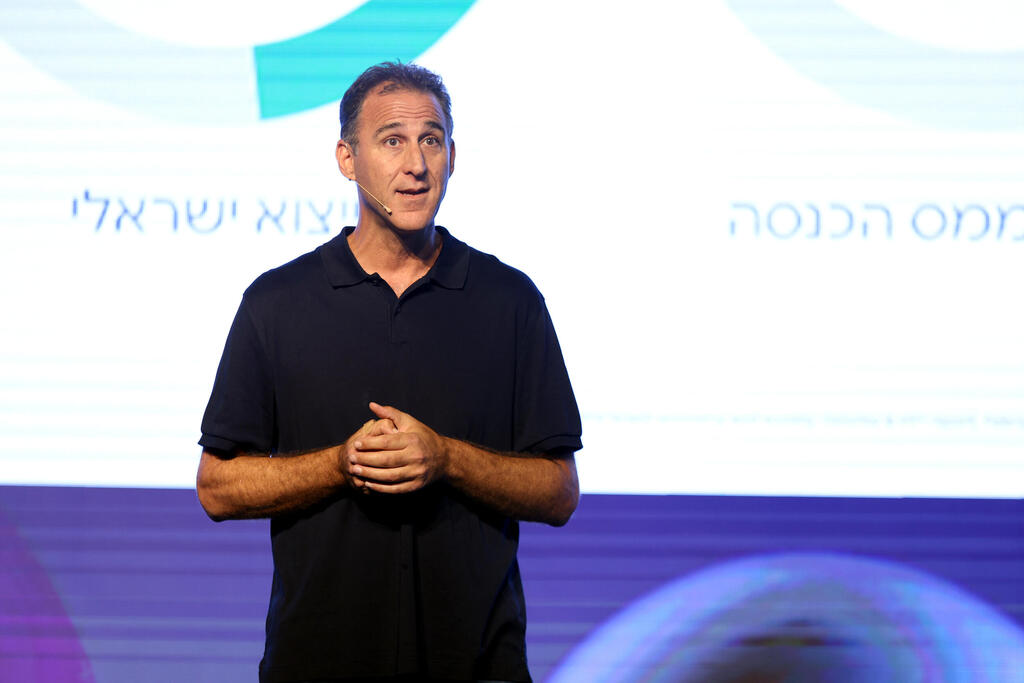
“The challenges we are facing jeopardize the continued existence of the 'miracle' of Startup Nation”
Barak Regev, Country Director at Google Israel, was speaking at the National Economic Conference in Tel Aviv
"Let us try to imagine the economic situation of the State of Israel in 20 years," said Barak Regev, Country Director at Google Israel, speaking at the National Economic Conference in Tel Aviv. "On the face of it, and from an optimistic point of view, Startup Nation will continue to push the Israeli economy forward the way it did in the last generation.
"After all, when you think about it, in the last 20 years, the high-tech industry has been the main engine of the Israeli economy. To understand the numbers: at the level of GDP, the Israeli high-tech industry produces more than a fifth of the gross national product. When it comes to income from taxes from employees, we are talking about 34% last year - and at the level of exports, we are talking about 48% of the exports of the State of Israel coming from the high-tech industry. That is, almost half of Israeli exports come from the Israeli high-tech industry, and this is even with the fact that only 10% of the Israeli workforce work in high-tech."
According to him, "this is the reason why we must do everything in our power to keep Israeli high-tech strong so that it continues to be the economic engine that allows the State of Israel to grow."
Regev noted that "the last year has brought with it many economic challenges. After the accelerated growth during the Corona period, we are experiencing a slowdown, especially in the high-tech industry. Startup companies and growth companies face fundamental questions regarding the business model, profitability, and recruitment.
"I see what's happening around us in the last months and weeks; you see it - and I'm worried about the future of Israeli high-tech. Investors express real concern. Accordingly, the volume of investments is decreasing in Israel. Fewer startups are born, and the sense of uncertainty is increasing. The challenges we are facing now jeopardize the continued existence of this 'miracle,' what we all know as Startup Nation, that so many have worked so hard to make a reality."
According to him, "All these question marks are added to another question mark, or even an exclamation point, that the industry has been facing in recent years - the lack of quality personnel that threatens the continued growth of this industry. Yes, even in the current period, there is a demand for new employees in high-tech. But as of today, we are recruiting mostly people with more or less the same background. You may know them, and I know some of them: these are men from the center of the country, some of whom served in the 8200 and have a university degree. It's just not enough to grow. It wasn't enough for us during the growth period, and it won't be enough later. We are currently in a state of slowdown. If we look ahead - the pools of high-quality potential candidates for the industry are running out. If we want to build a prosperous industry for the long term, we must already start building a high-quality workforce and give it unique skills for high-tech. It must be from parts of society that until today were underrepresented."
He added, "Only 33% of high-tech employees are women. Only 3% of high-tech employees are from Arab communities. And only 2% are ultra-Orthodox. From my worldview and that of Google as a company - which sees Google as part of the society and country in which it operates, Google is committed to the growth of Startup Nation. We at Google help about 1,500 startups a year, which are the future engine of growth, to dream, build, and grow, with a variety of programs at different stages of the startup's life: starting with the campus we opened for startups and these days is celebrating a decade, where we meet entrepreneurs at the beginning of their journey. And the programs and teams that help startups grow and become global companies."














